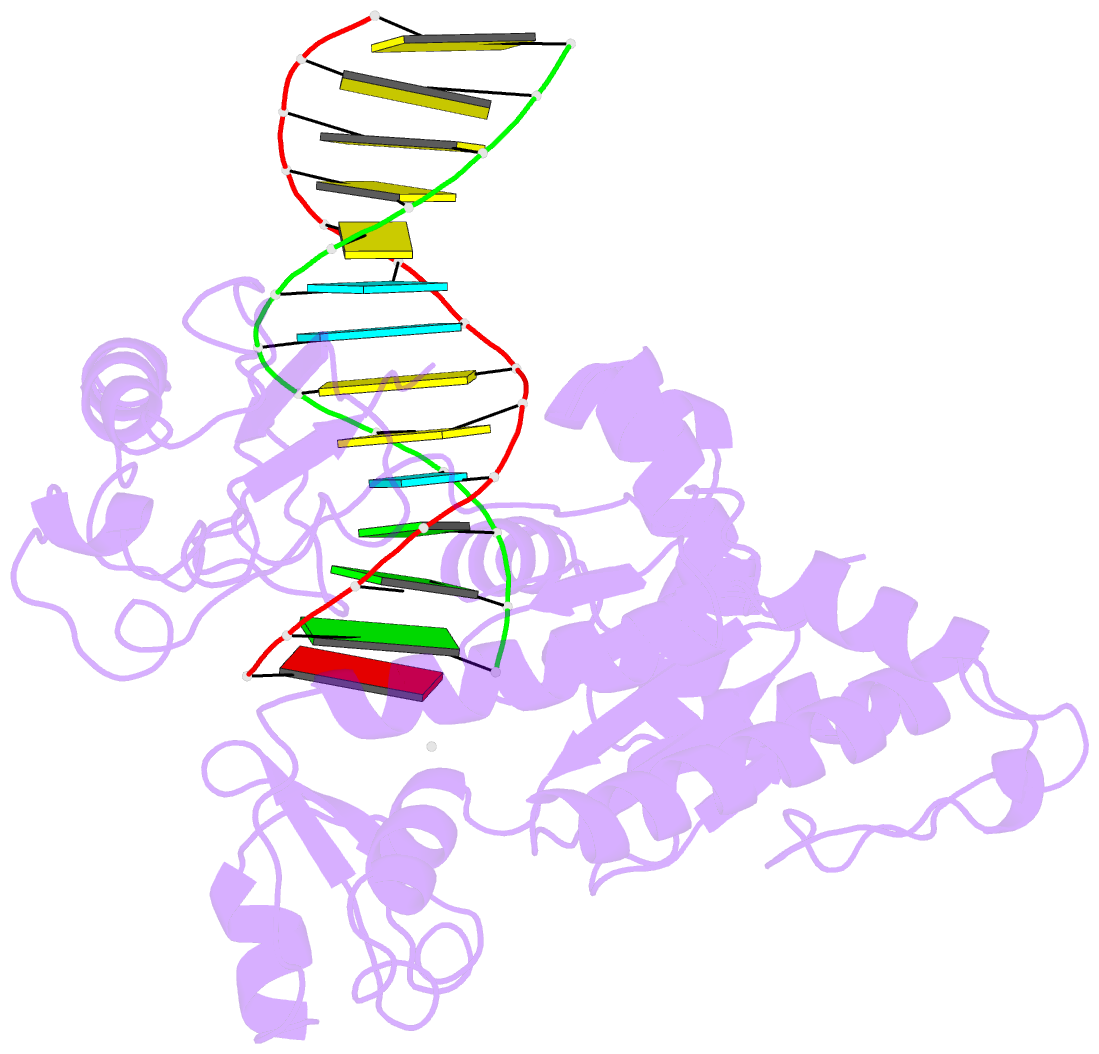Summary information and primary citation
- PDB-id
- 1zet; SNAP-derived features in text and JSON formats;
DNAproDB
- Class
- replication-DNA
- Method
- X-ray (2.3 Å)
- Summary
- X-ray data do not support hoogsteen base-pairing during replication by human polymerase iota
- Reference
- Wang J (2005): "DNA polymerases: Hoogsteen base-pairing in DNA replication?." Nature, 437, E6-7; discussion E7. doi: 10.1038/nature04199.
- Abstract
- Human polymerase-iota belongs to the error-prone Y family of polymerases, which frequently incorporate incorrect nucleotides during DNA replication but can efficiently bypass DNA lesions. On the basis of X-ray diffraction data, Nair et al. propose that Hoogsteen base-pairing is adopted by DNA during its replication by this enzyme. Here I re-examine their X-ray data and find that the electron density is very weak for a Hoogsteen base pair formed between a template adenine deoxyribonucleotide in the syn conformation and a deoxythymidine 5'-triphosphate (dTTP), and that the fit is better for a normal Watson-Crick base pair. As a guanine-cytosine (G-C) base pair has no potential to form a Hoogsteen base pair at physiological pH, Hoogsteen base-pairing is unlikely to be used in replication by this polymerase.





